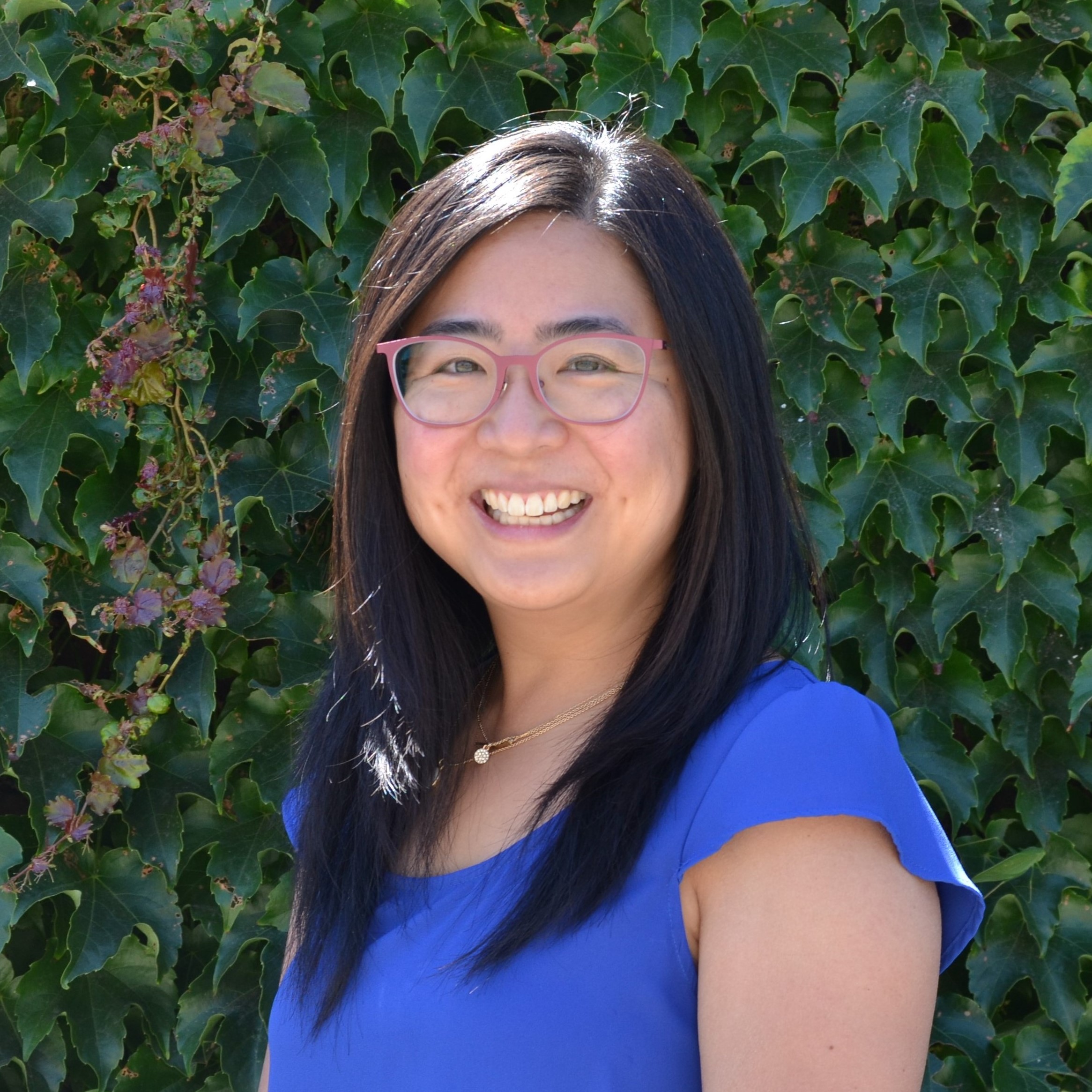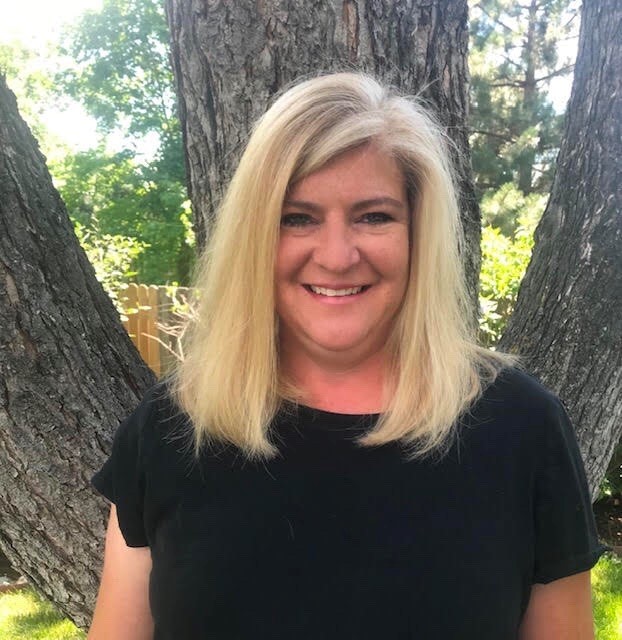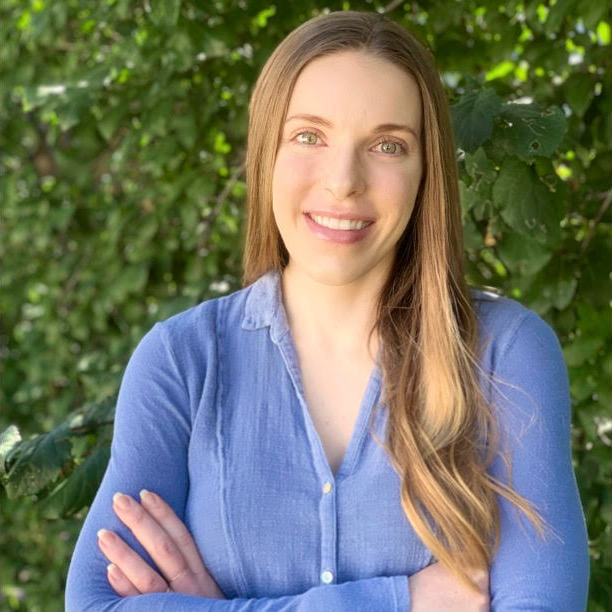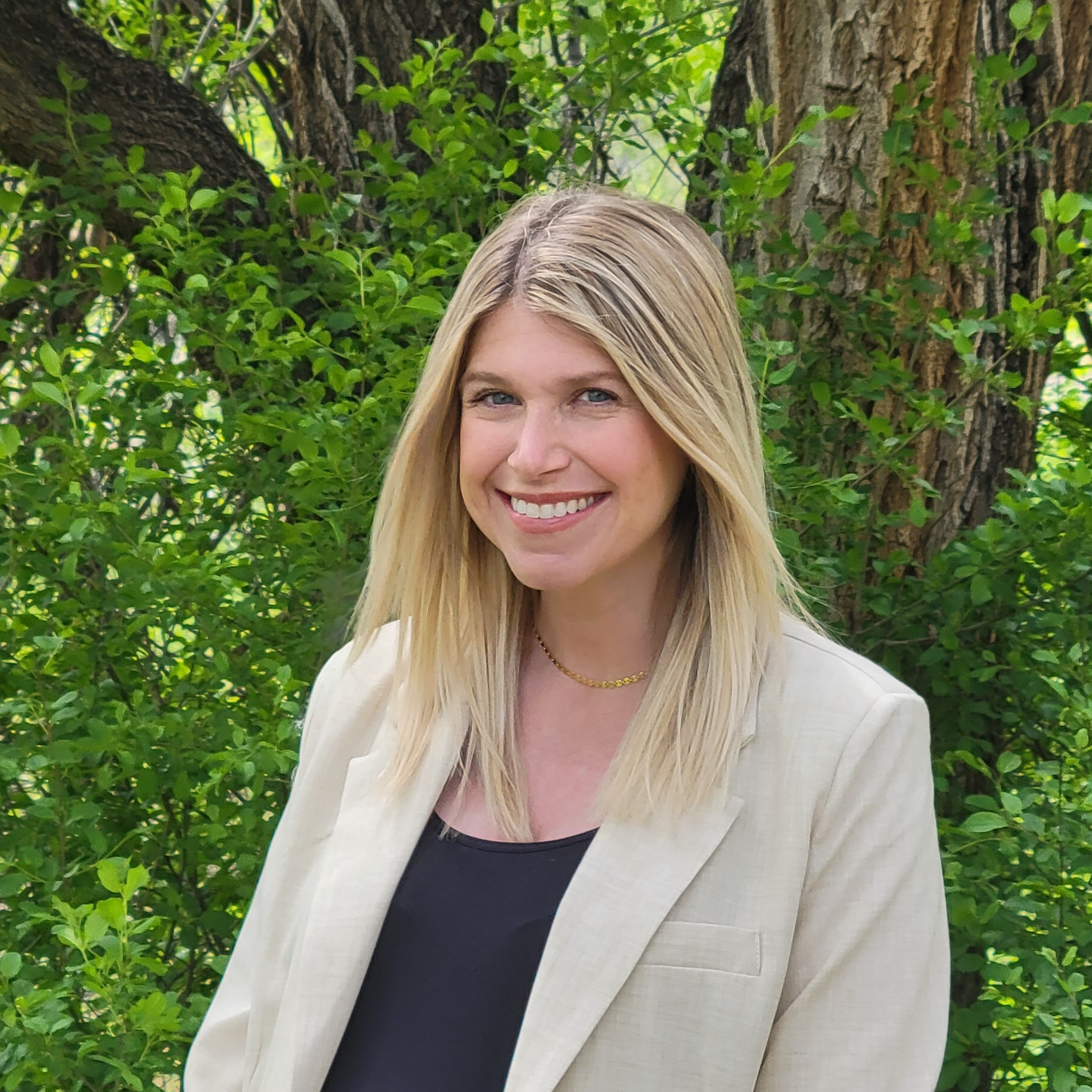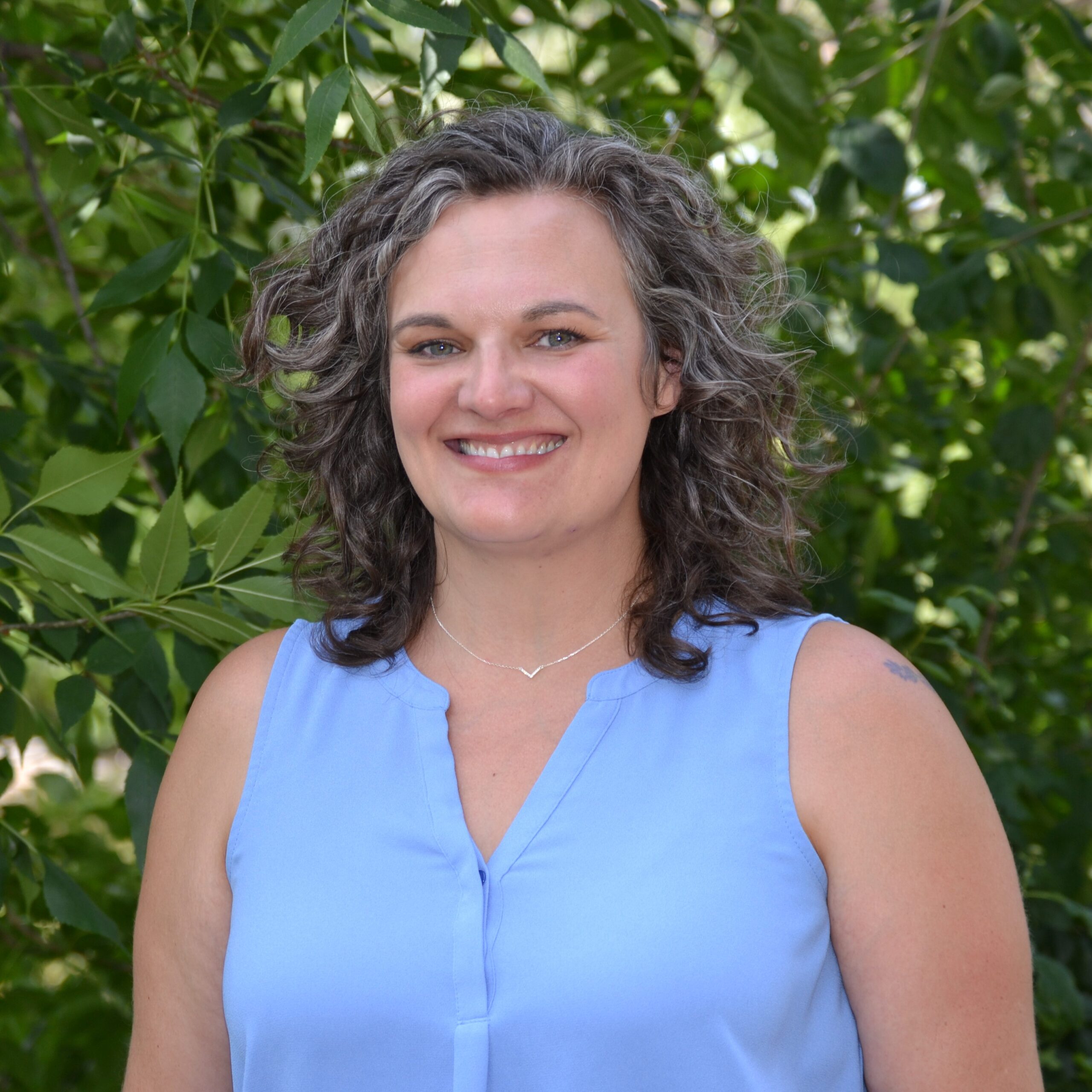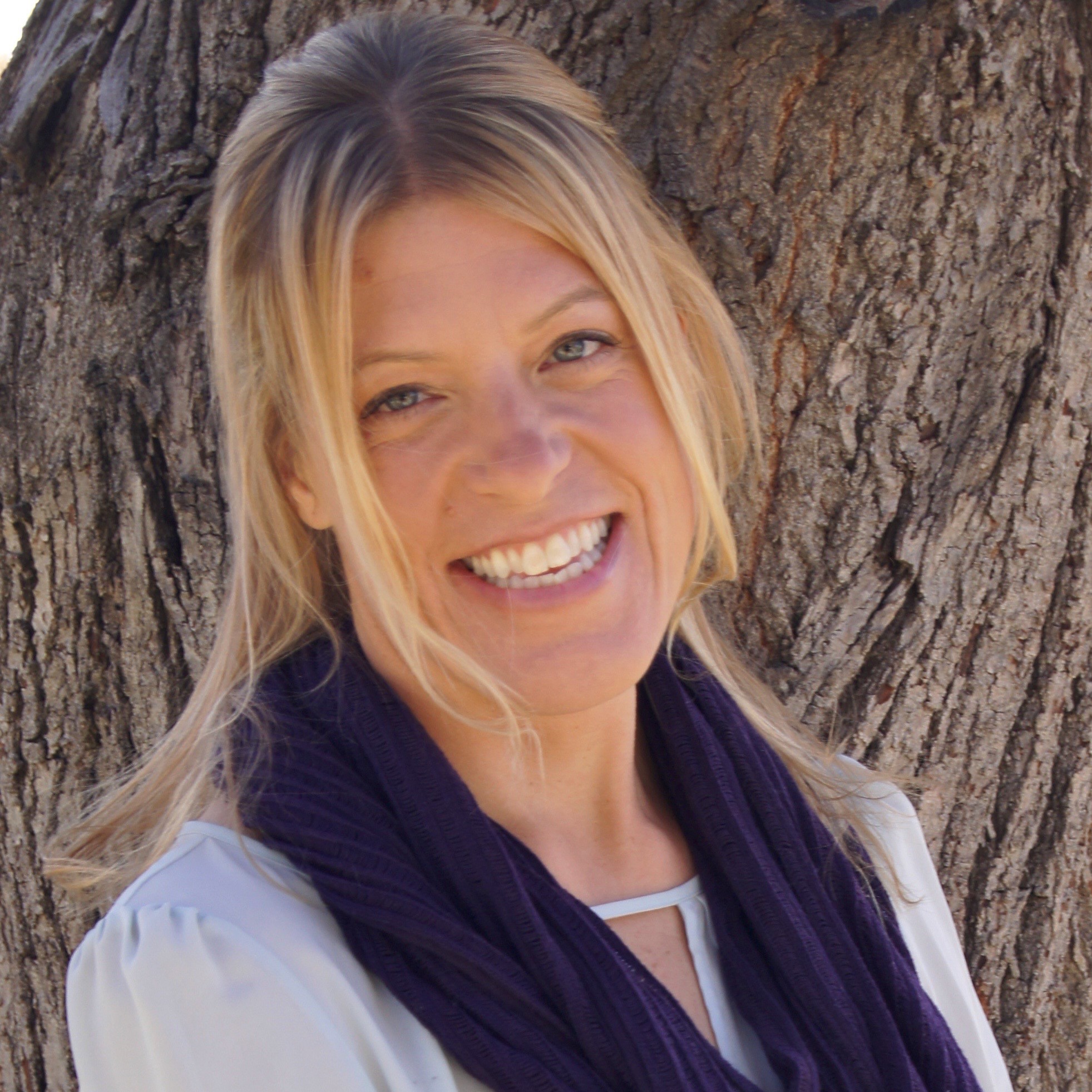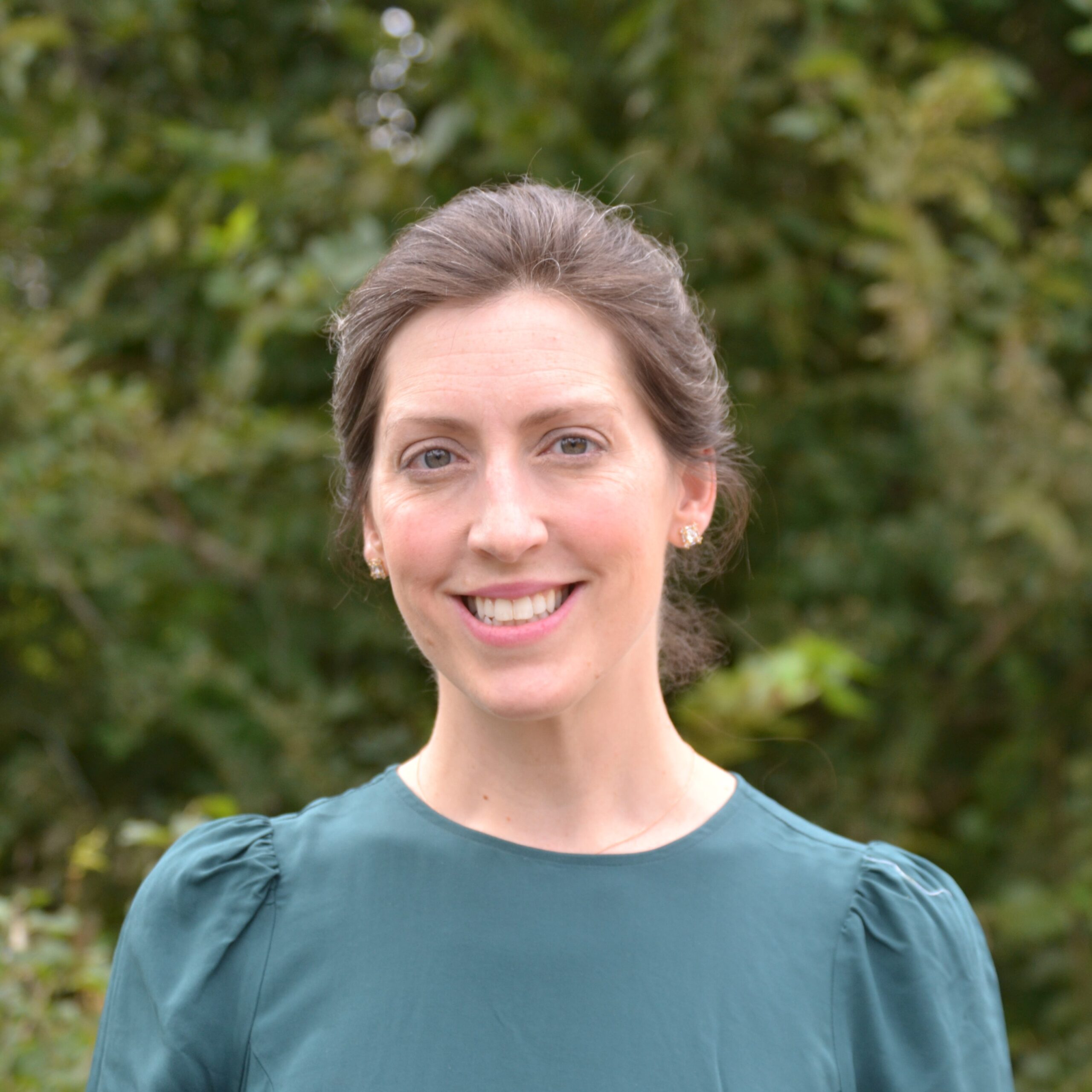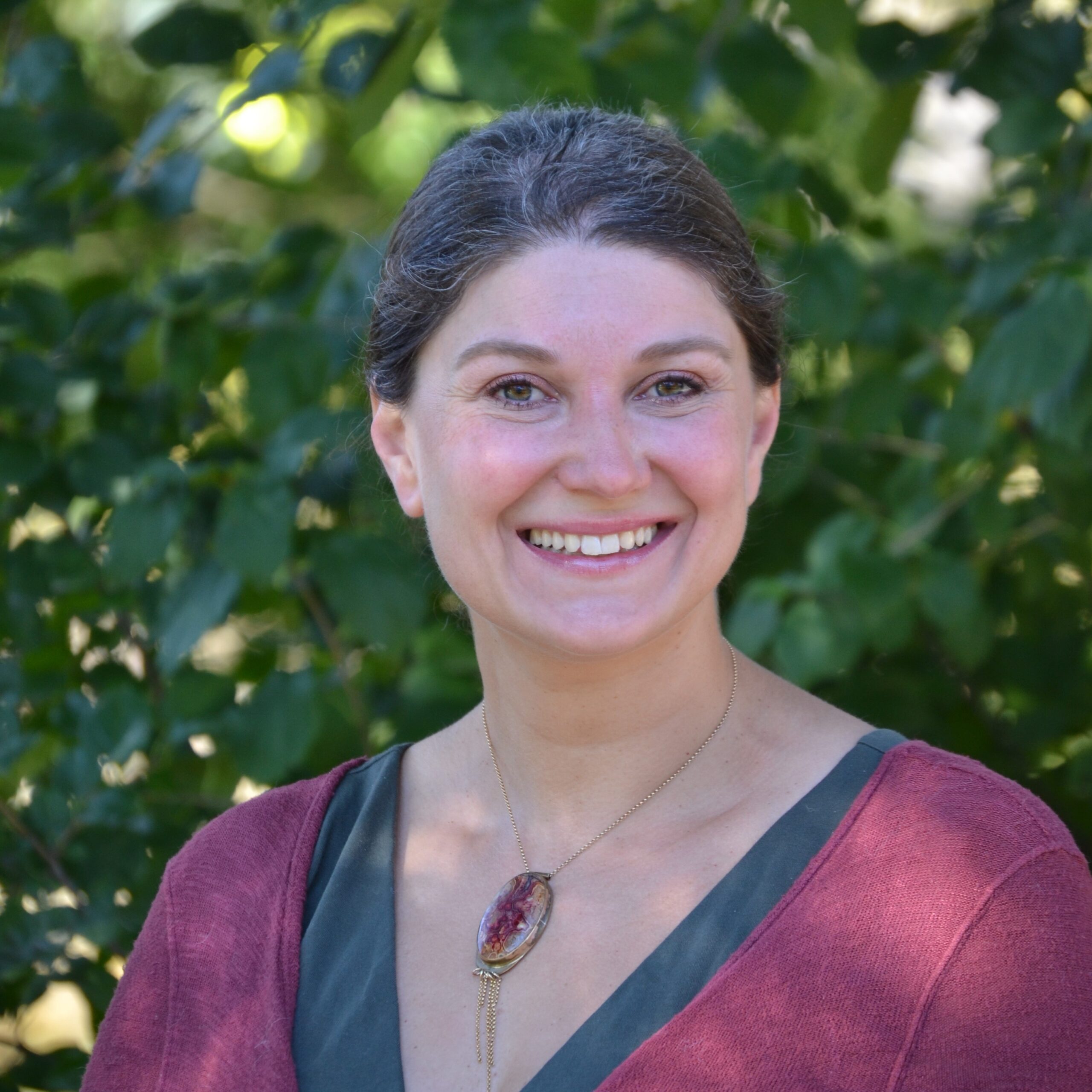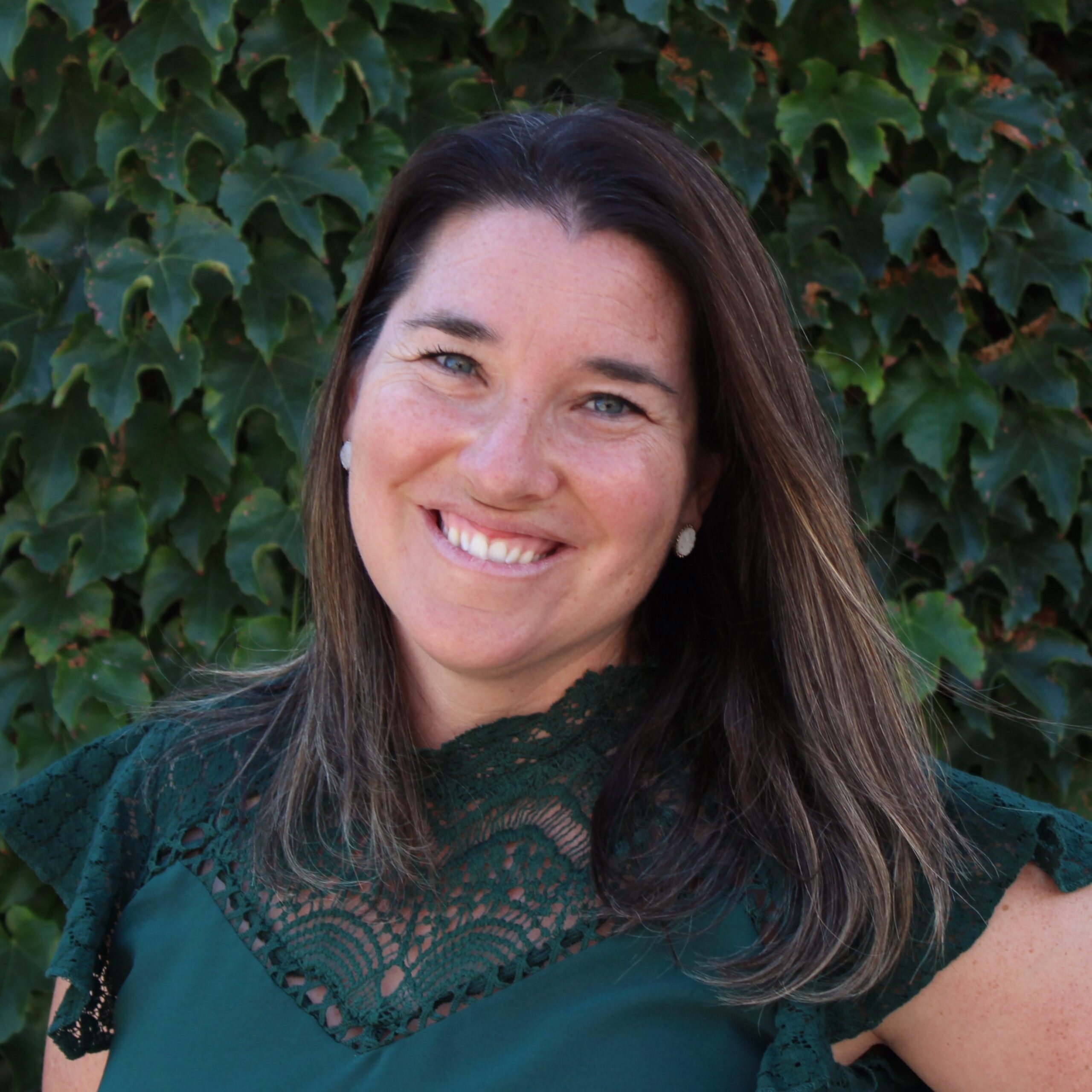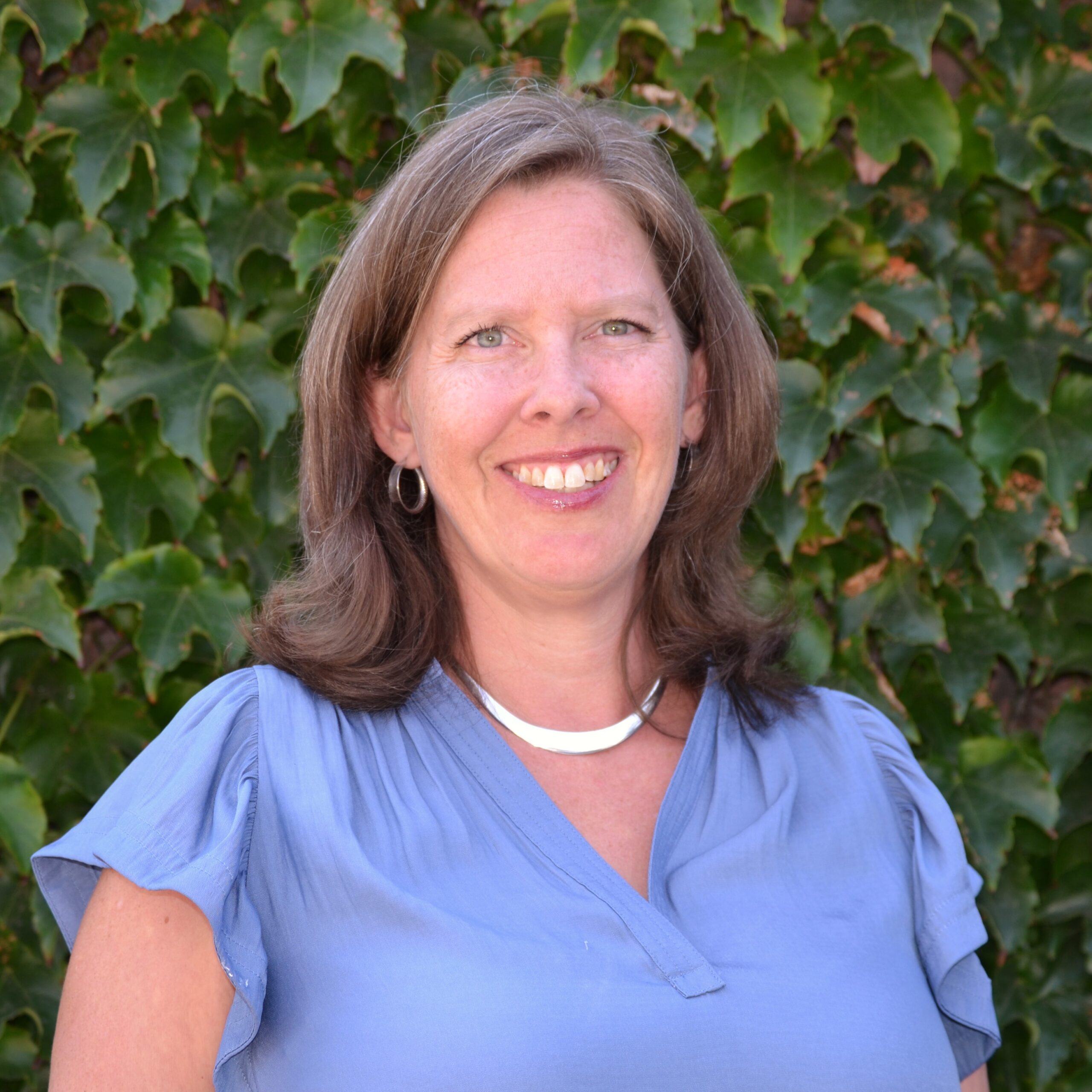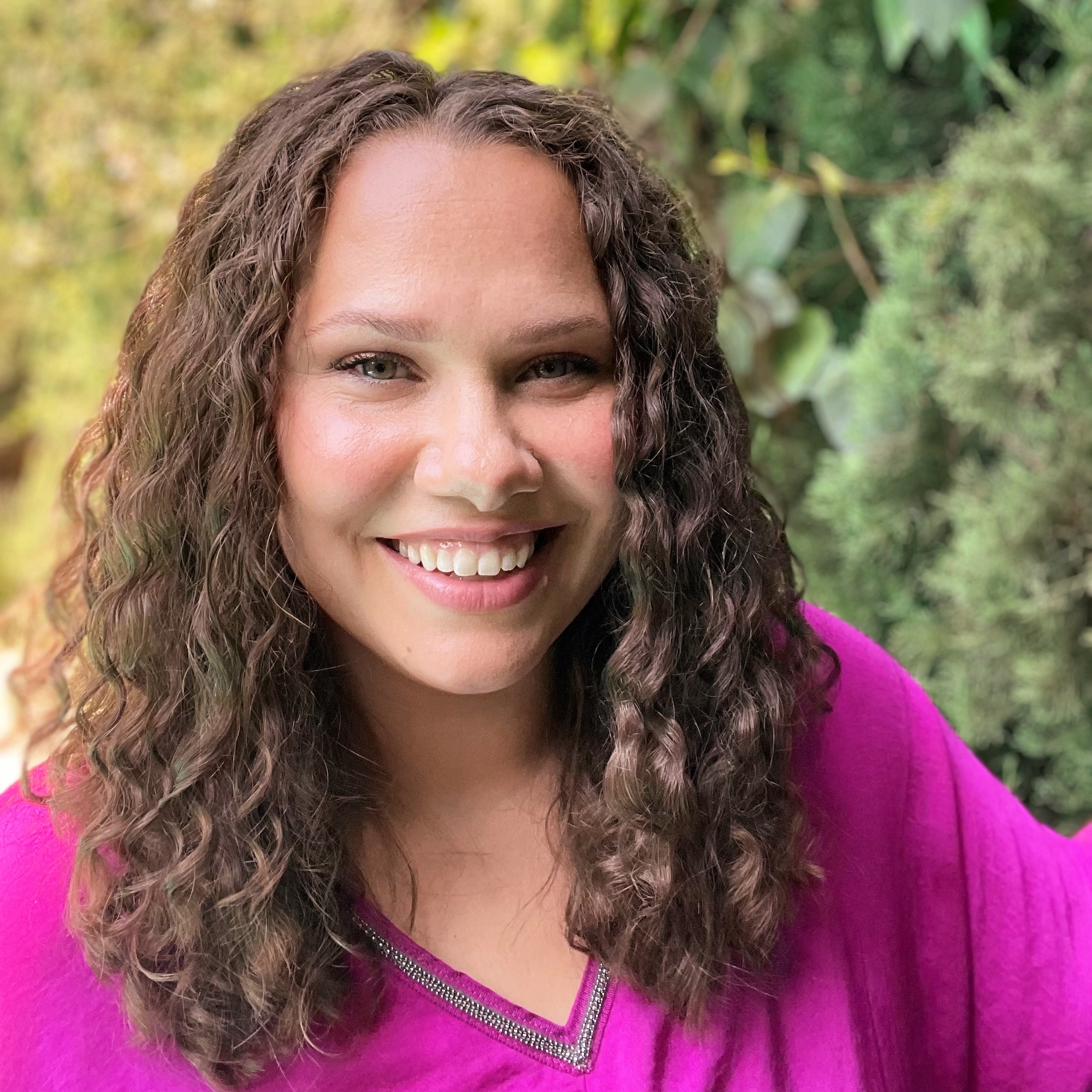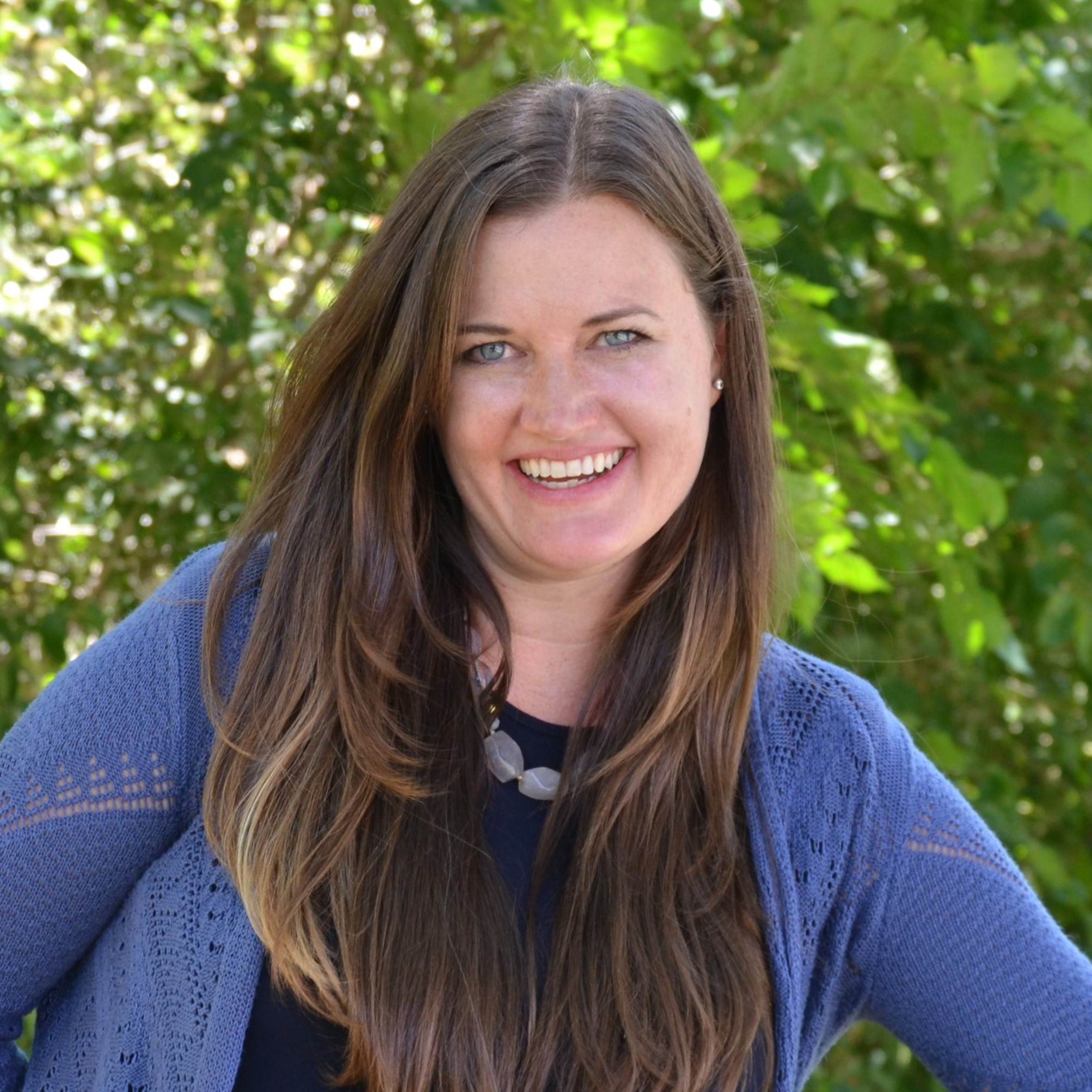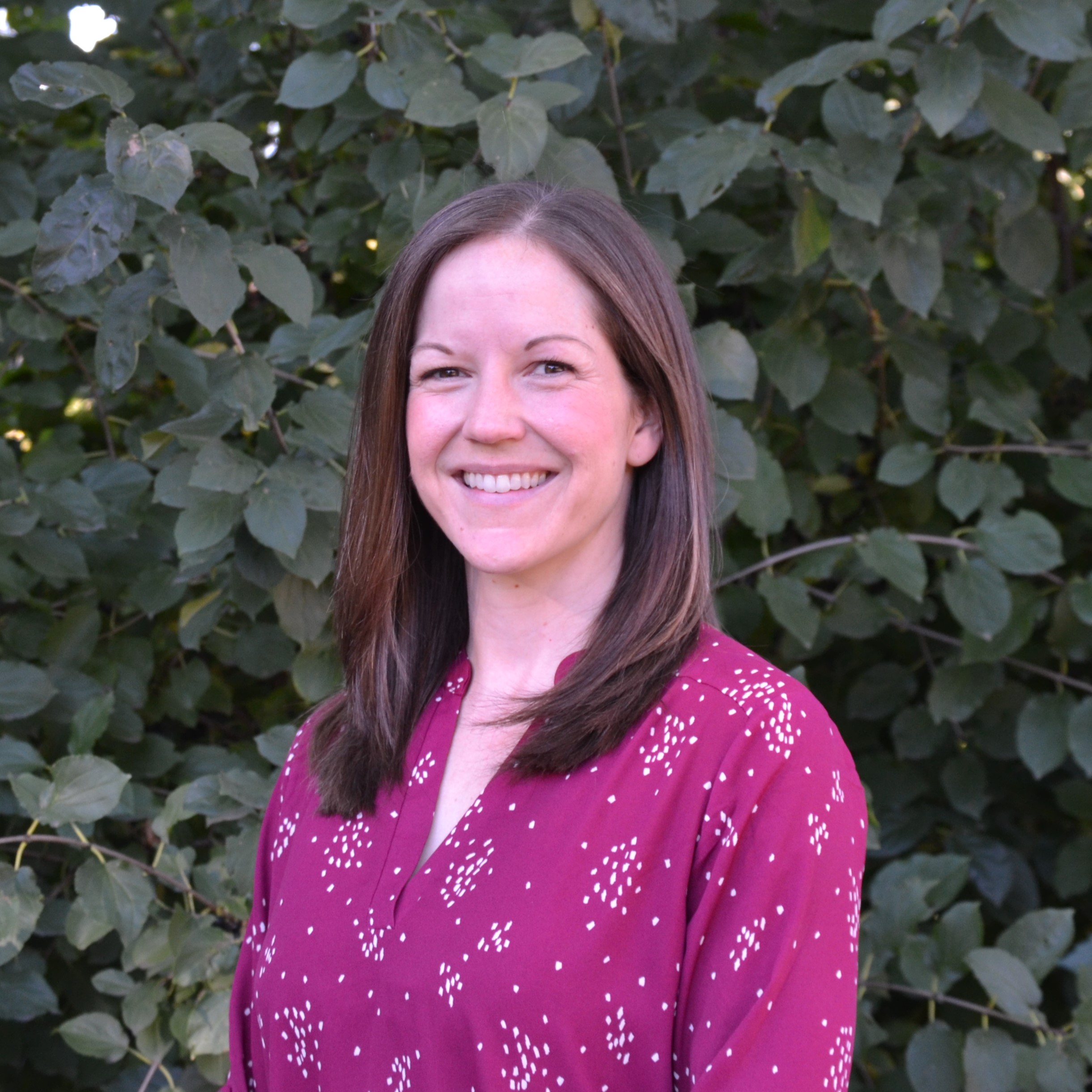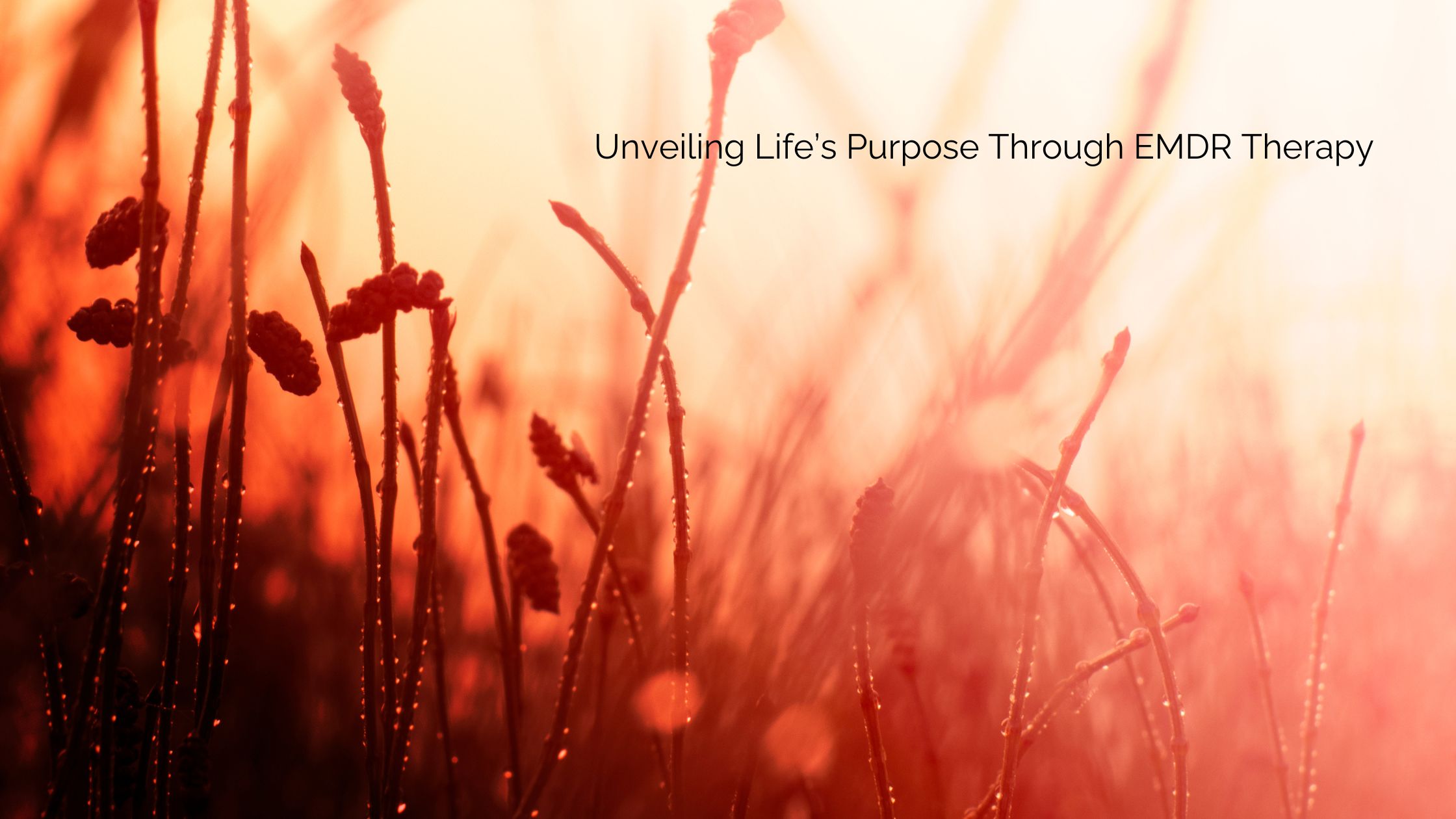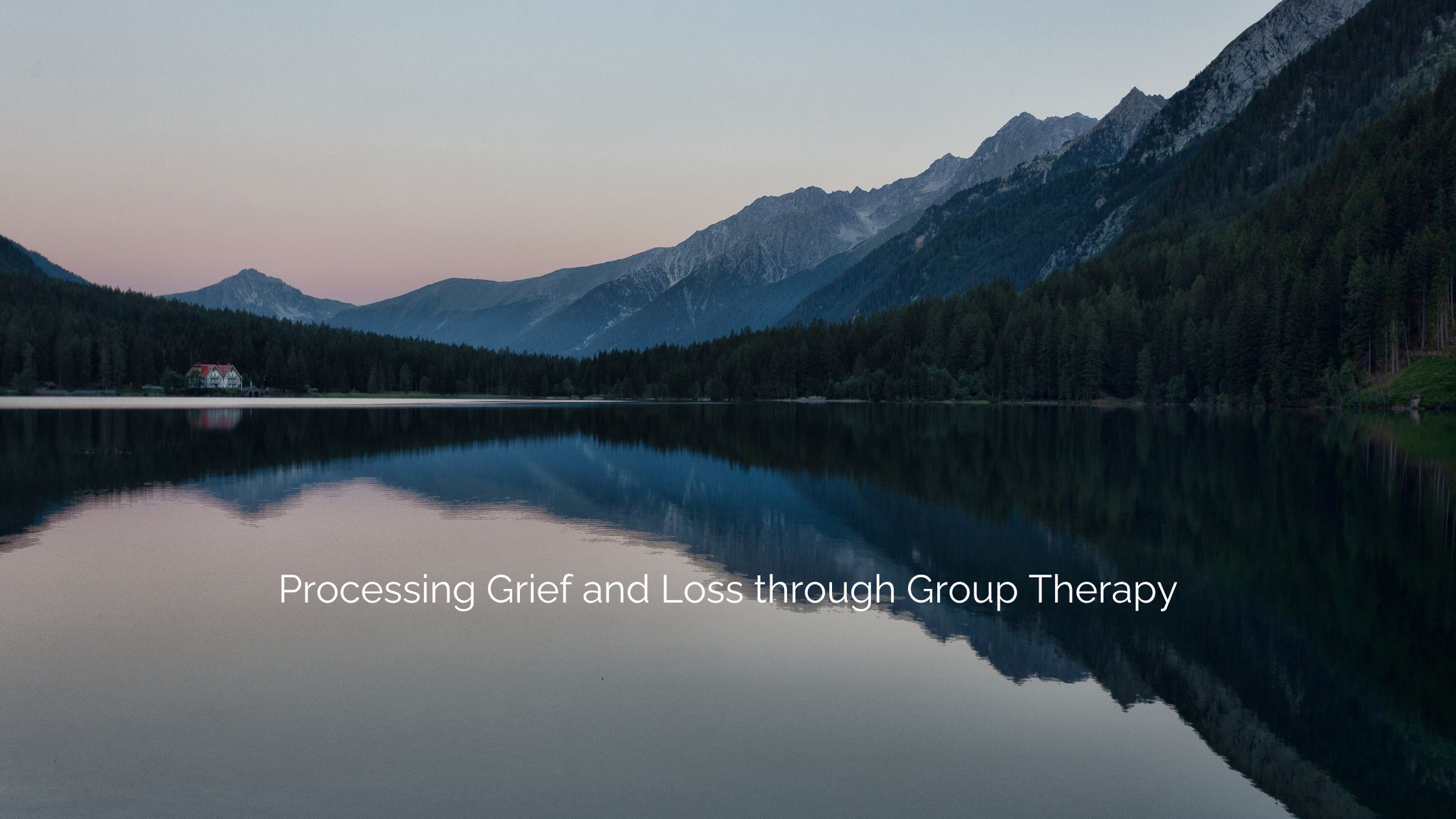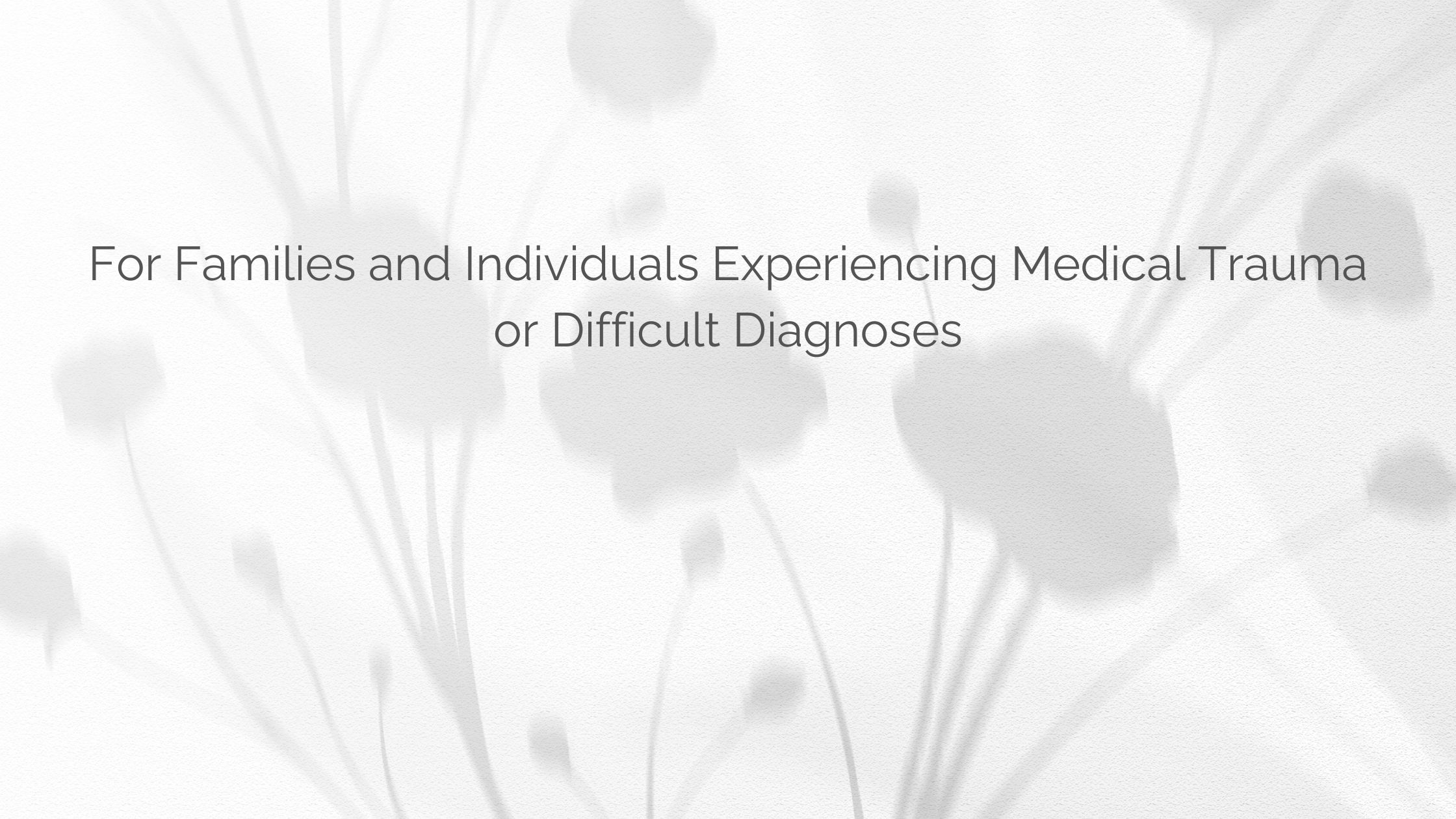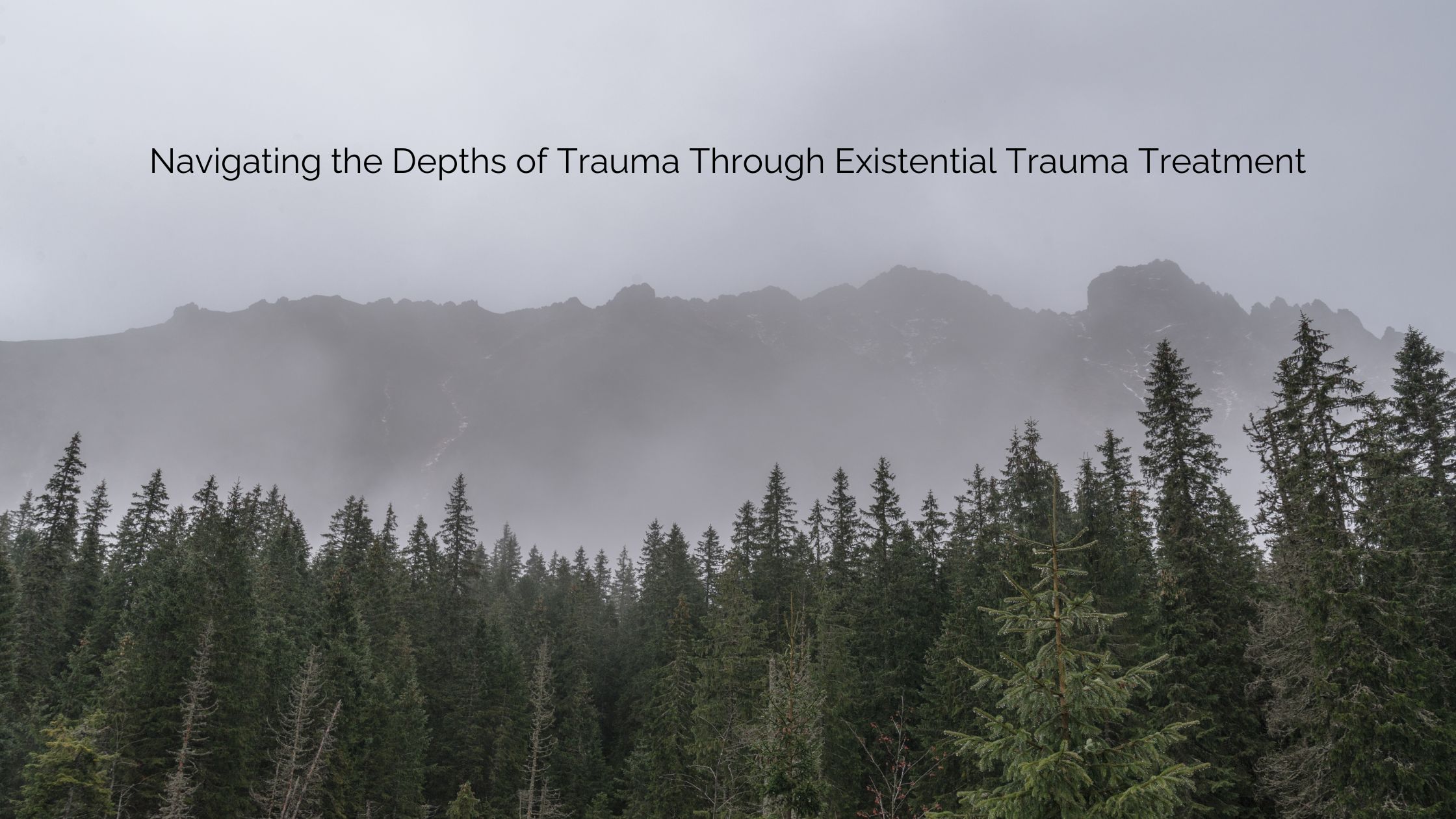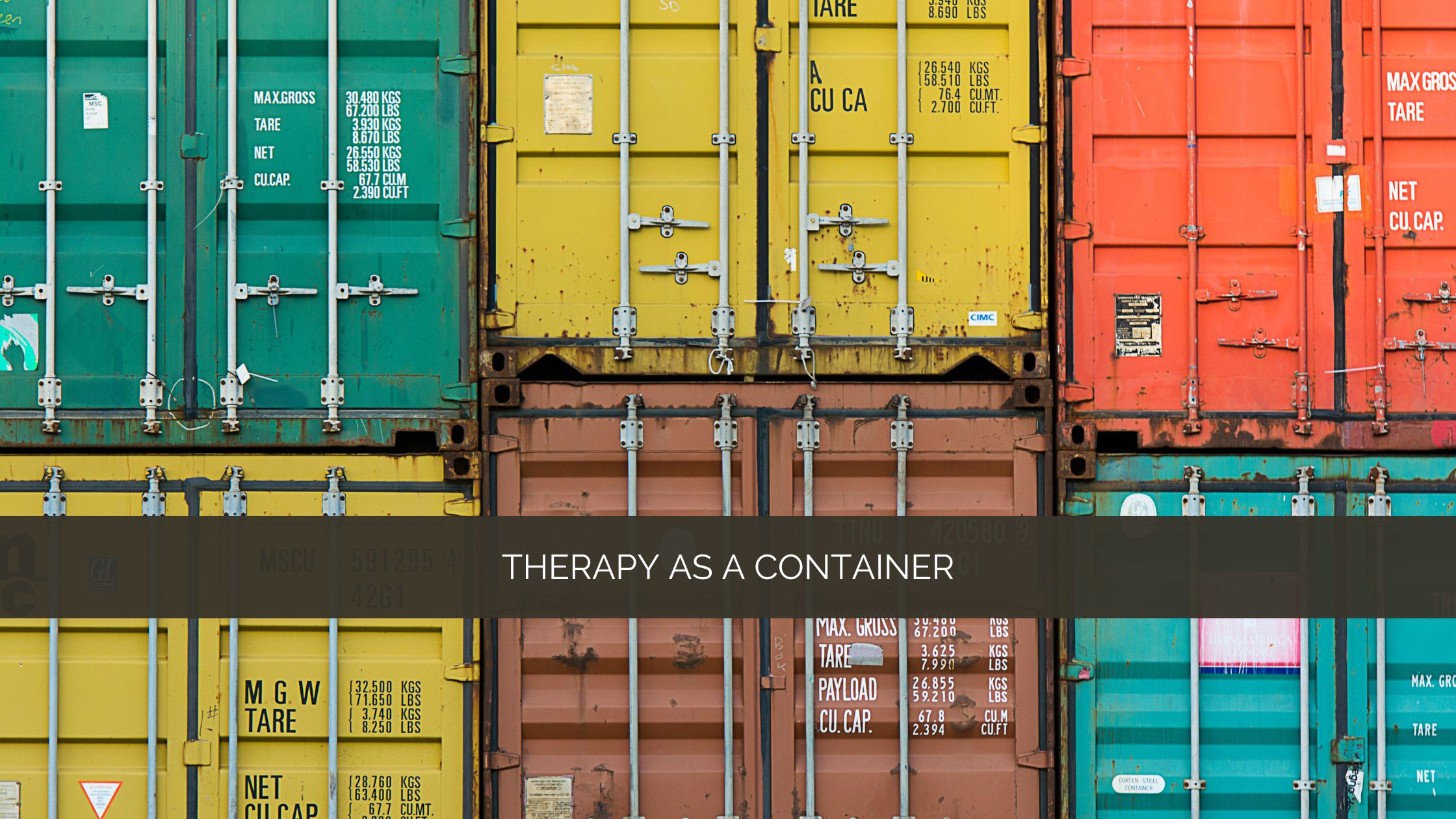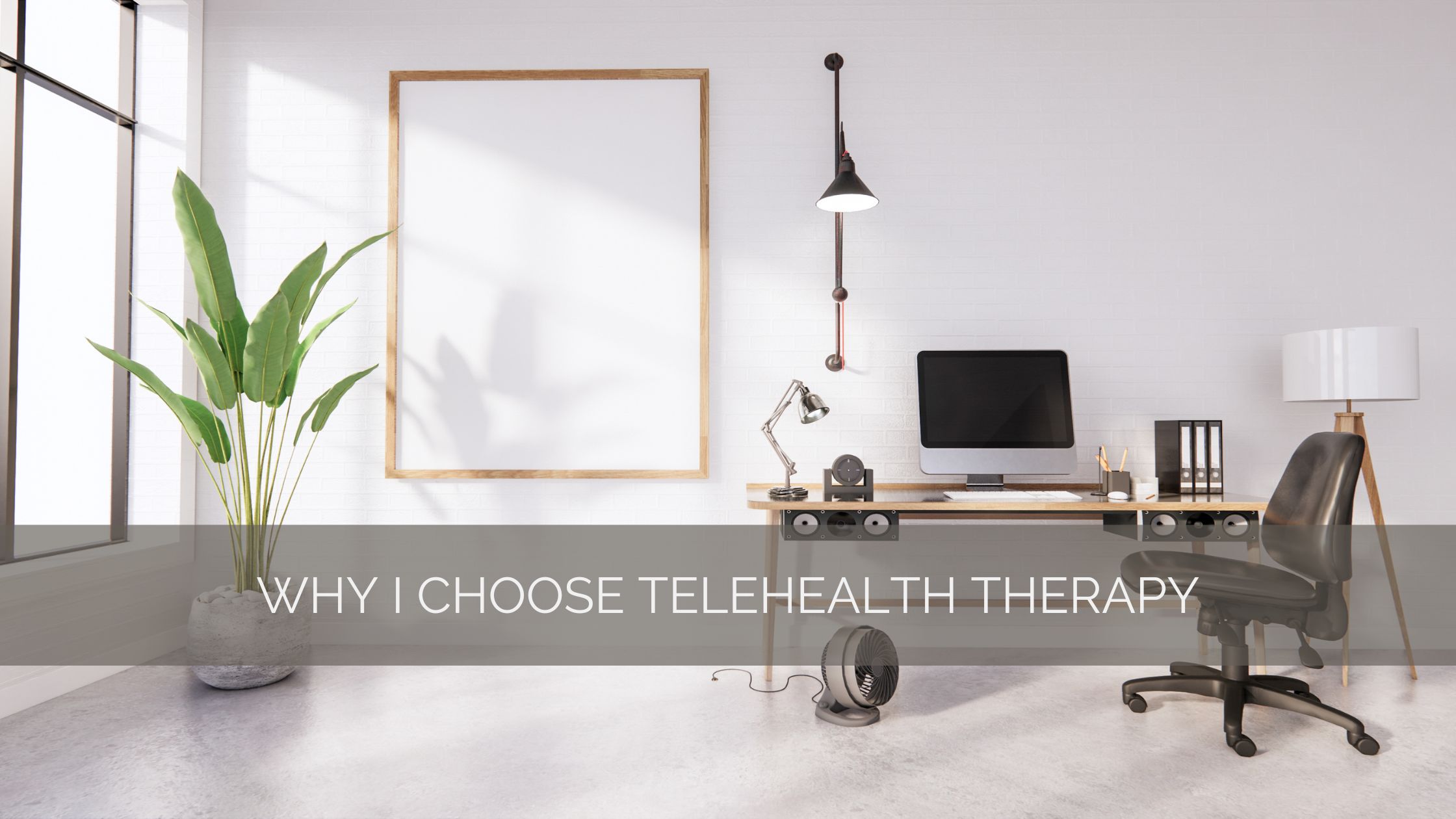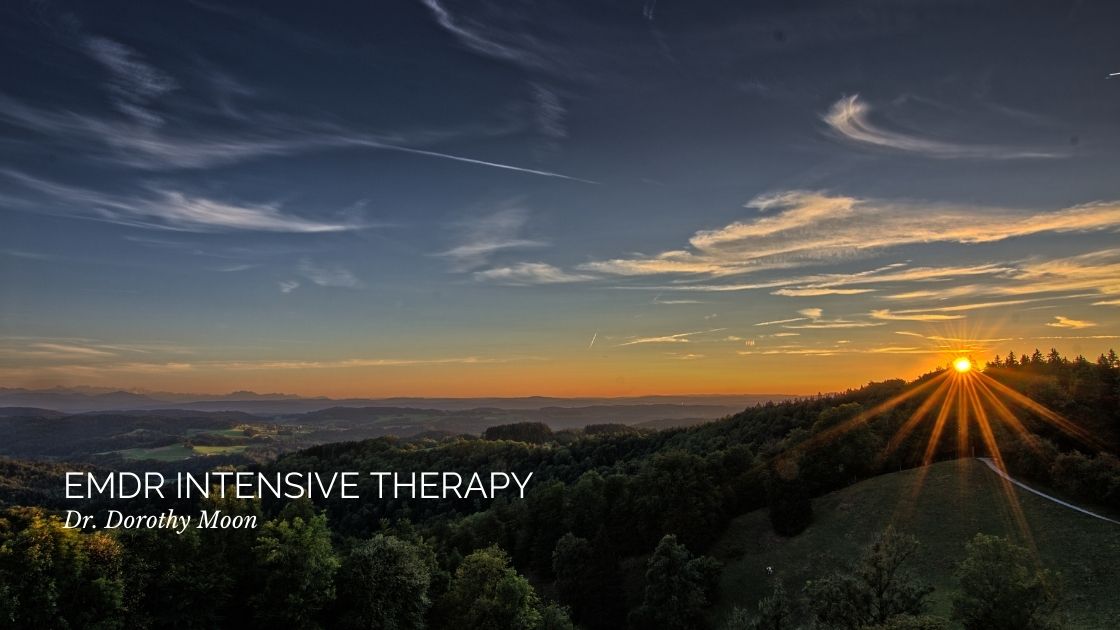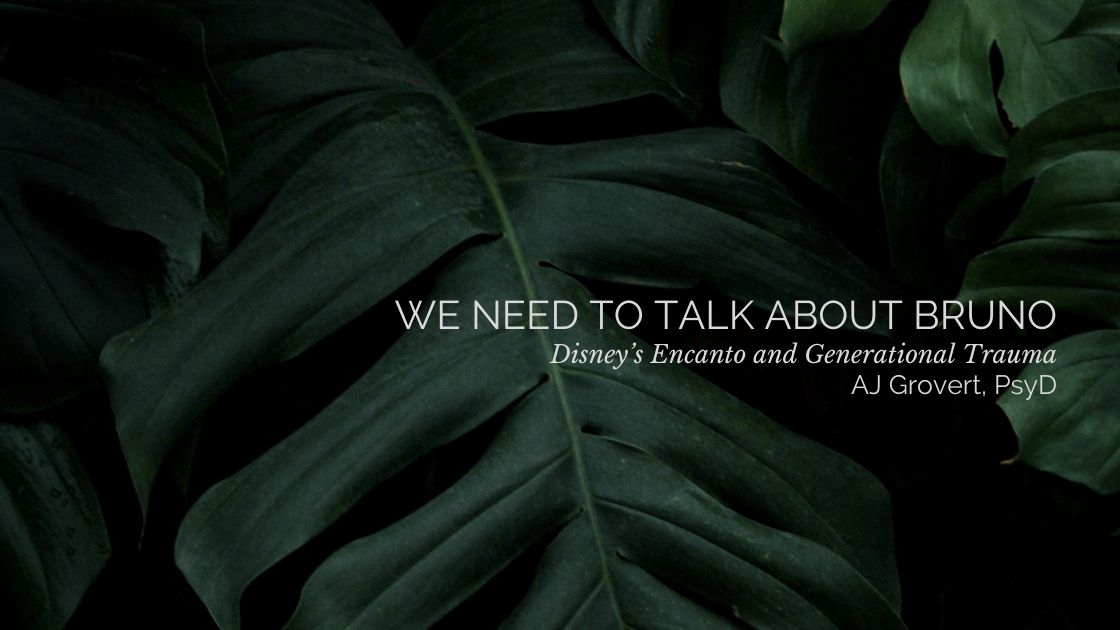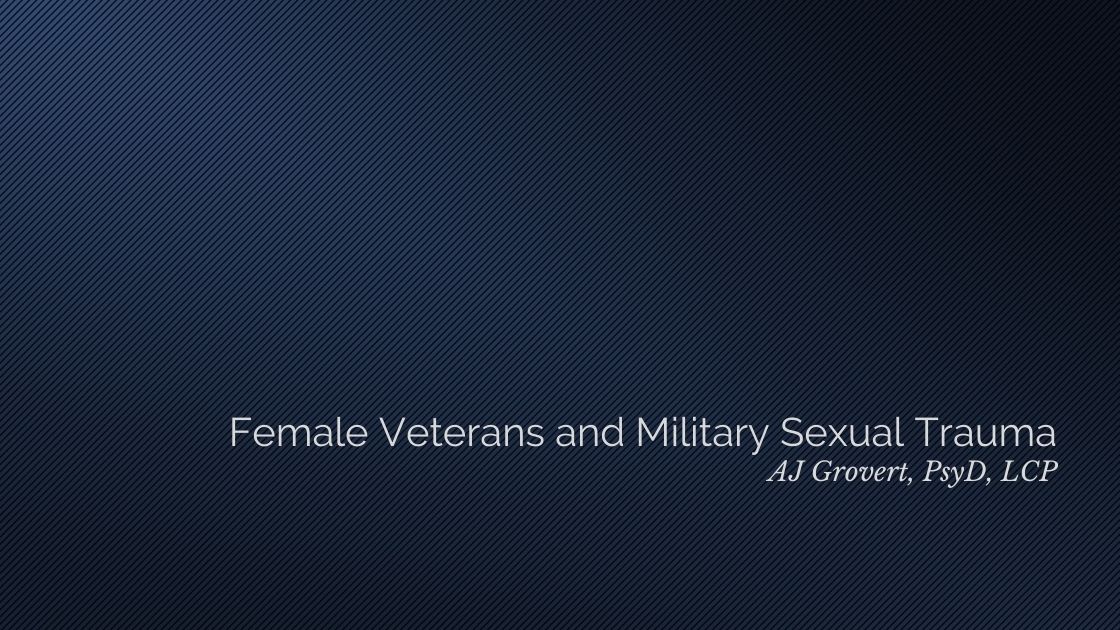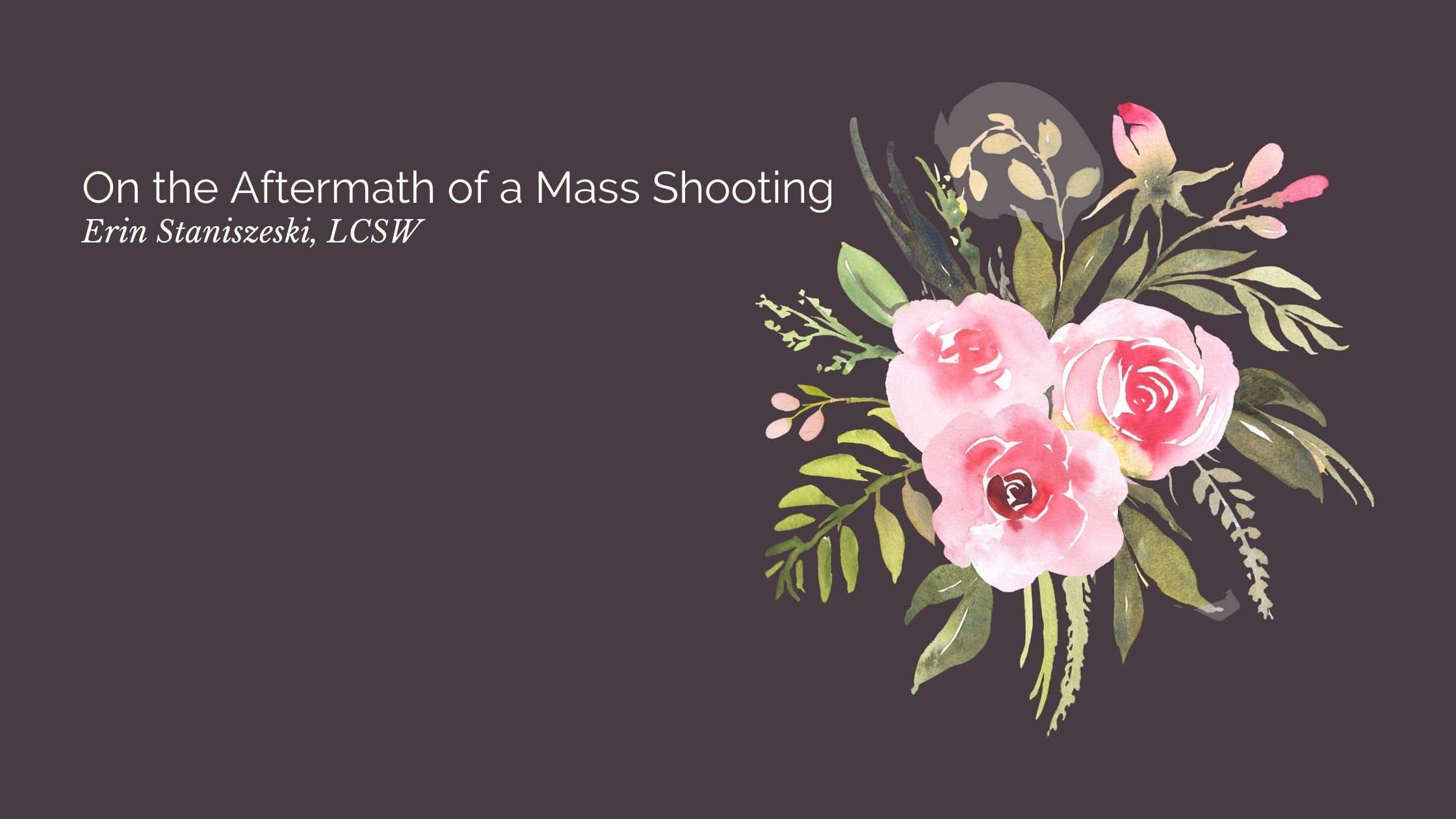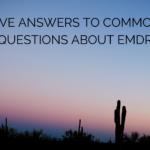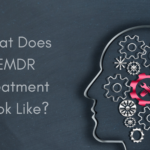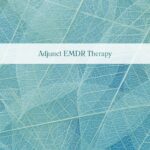EMDR
EMDR
Ages 5 – Adult
“EMDR: Unleashing the power within to heal, transform, and thrive.”
~ Francine Shapiro
Through 35 years of research, EMDR has been shown to effectively decrease symptoms associated with numerous concerns, including Post-Traumatic Stress Disorder (PTSD), complex trauma, anxiety, eating disorders. and elements of depression.
Because we believe EMDR is a powerful tool that offers great potential for healing, our entire team is trained in EMDR. Several therapists are certified and are consultants. We offer EMDR for individuals and couples, pediatric EMDR, EMDR Intensives, and the integration of EMDR into psychedelic therapy.
The Healing Potential of EMDR
Although EMDR was originally developed to address the symptoms of trauma, EMDR can also help with the following:
- Decreasing panic attacks, social anxiety, and phobias
- Healing from complicated grief and loss
- Treating body dysmorphic disorders
- Improving body image and self-esteem
- Treating complex trauma and dissociative disorders
- Addressing performance anxiety in a variety of settings
- Reducing or eliminating distressing emotions related to painful memories
- Improving relationships
- Letting go of perfectionism
- Replacing negative beliefs about yourself, the world, and others with more adaptive ones

A bibliography of the extensive 35+ years of research about the benefits of EMDR can be found at the EMDR International Association’s website: www.emdria.org
Common Questions about EMDR
What is EMDR?
EMDR stands for Eye Movement Desensitization and Reprocessing. EMDR is an evidence-based practice initially developed by Francine Shapiro in 1987. as an intervention to overcome the psychologically devastating effects of trauma.
More specifically, EMDR is an 8-phase therapeutic process discovered by an American Psychologist, Francine Shapiro, in 1987. The eight phases include: History and Treatment Planning, Preparation, Assessment, Desensitization, Installation, Body Scan, and Closure. While true EMDR utilizes all 8 phases, when people talk about EMDR, they are generally referring to the Desensitization stage. This is the stage which involves Bilateral Stimulation, which can be done through various types of alternating bilateral stimulations including eye movement, tapping on the knees or hands, using hand-held buzzers, or listening to auditory stimuli.
How does EMDR work?
Because EMDR incorporates bilateral stimulation, people are able to process through their issues much more quickly and effectively than traditional talk therapy.
Essentially, the Bilateral Stimulation works with both hemispheres of the brain to help desensitize the neural pathways the brain currently uses when thinking about a traumatic event (Desensitization Stage). The Bilateral Stimulation is then able to create new neural pathways in the brain to install a stronger, more adaptive belief (Installation Stage).
Clients can experience EMDR in many different ways. For some it involves thoughts, memories, or feelings. For others, the process may involve more physical sensations such as pressure in the chest. Regardless of how people process, the goal is to reduce the distress associated with the target issue.
Besides trauma, what else can EMDR help with?
Although EMDR was originally developed to address the symptoms of trauma, EMDR can also help with the following:
- Decreasing panic attacks, social anxiety, and phobias
- Healing from complicated grief and loss
- Treating body dysmorphic disorders
- Improving body image and self-esteem
- Treating complex trauma and dissociative disorders
- Addressing performance anxiety in a variety of settings
- Reducing or eliminating distressing emotions related to painful memories
- Improving relationships
- Letting go of perfectionism
- Replacing negative beliefs about yourself, the world, and others with more adaptive ones
How does EMDR differ from other trauma therapies?
All trauma interventions have a similar goal: reduce the distress caused by traumatic memories. There are three main evidence-based therapies for trauma: prolonged-exposure therapy (PE), Eye Movement Desensitization and Reprocessing (EMDR), and trauma-focused cognitive behavior therapy (TF-CBT). EMDR has been found to help in fewer sessions and does not require homework between sessions. It is the classic treatment for veterans and first responders suffering from PTSD, survivors of violence, and those suffering the effects of traumatic natural disasters such as hurricanes and other forms of devastation.
Can I stay with my current therapist and still receive EMDR therapy from you?
Yes. Because not all therapists are trained to use this form of therapy, we offer our expertise in EMDR to supplement the ongoing therapy clients are already receiving with their primary therapist. Adjunctive therapy does not replace or interrupt ongoing therapy. It is complementary to primary therapy.
The process entails well-focused and clearly defined issues to address with EMDR, such as intrusive memories, flashbacks, negative thoughts, or other feelings that just don’t change or go away during traditional treatment. Usually this type of adjunctive therapy is short term and can be done in the form of an intensive.
Meet The EMDR Therapists
Dorothy Moon, PsyD, LCP
Erin Staniszeski, MSW, LCSW
Libby Korell, MSW, LCSW
Libby Korell, MSW, LCSW
Libby Korell, LCSW is passionate about her work helping people heal from complex, multilayered traumatic histories. She has special expertise in helping children and families coping with life limiting illness, abuse, major trauma and loss. She works with children, adults and parents in a caring, direct, and warm manner. She is highly adept at working with pregnant moms, postpartum families, and adults (ages 20 and up) struggling with depression, anxiety, or Posttraumatic Stress Disorder...
Allison Kalivas, MA, MFTC
Allison Kalivas, MFTC is an empowering therapist who brings her genuine care and curiosity to each person she works with. Her specialties include EMDR, Eating Disorder Recovery, and Psychedelic Assisted Therapy. Allison's is not afraid to be in a tough place with you. She knows that coming into therapy can be a vulnerable experience. She will be your co-pilot, sitting with you in your experience and motivating you to focus on your goals...
Hannah Pitts, MSW, LCSW
Hannah Pitts is passionate about her work with children, new mothers and parents, and complex, multilayered traumatic histories. Hannah has provided trauma-informed care to children, teens, and adults for nearly a decade. She works with all ages to provide sound care for all of her clients in a compassionate, non-judgmental environment. Hannah works with the whole family around medical issues, trauma, grief and loss, adoption, and blended families. She is trained in EMDR and Brainspotting...
Dorothy Moon, PsyD, LCP
Dr. Dorothy Moon is a psychologist with 15+ years of experience, she is a gifted couples and EMDR therapist who provides intensives to clients ready to dive in to healing. Dorothy is a certified EFT clinician. She uses EMDR, EFT, and somatic therapies to help adults and couples on a range of struggles including anxiety, depression, trauma, racial identity, cultural influences, life transitions, and relationship issues...
Lauren Pinneo, MSW, LCSW, LAC
With 15+ years as a therapist, Lauren Pinneo, LCSW, LAC, is a passionate advocate for her clients, supporting them as they heal from painful traumas. She uses her expertise in EMDR and psychedelic-assisted therapy to help clients move forward in a new direction. Lauren's warm and empowering personality allows her to connect with clients, while her depth of experience ensures her clients make tangible progress...
Sarah Long, PsyD, LCP, CEDS
Dr. Sarah Long is a gifted psychologist with 16+ years of experience helping people to...
Mary Miller, MS, LCSW
Mary Miller, LCSW is known for creating a space where clients feel safe and comfortable...
Lies van Bekkum, PsyD, LCP
Dr. Lies van Bekkum is a Licensed Clinical Psychologist, Perinatal Coordinator at The Catalyst Center...
Kendra Doukas, MS, LMFT
Kendra Doukas, LMFT is the Clinical Director of The Catalyst Center. Kendra is an experienced...
Katie Godfrey, PhD, LMFT
Dr. Katie Godfrey, LMFT is a seasoned expert in trauma recovery with EMDR, perinatal mood...
Karmen Thulin, PsyD, LCP
Dr. Karmen Thulin is a Licensed Clinical Psychologist serving clients remotely. She is easy to...
Joey Tadie, PhD, LCP
Dr. Joey Tadie is a talented psychologist with a gift for connecting with people. He...
Erin Staniszeski, MSW, LCSW
Erin Staniszeski, LCSW is passionate about her work with survivors of mass shootings, childhood trauma...
Erin Jacklin, PsyD, LCP
Dr. Erin Jacklin, CEO and founder of The Catalyst Center is passionate about psychedelic assisted...
Chelsea Campbell, PsyD, LCP
Dr. Chelsea Campbell is a Licensed Clinical Psychologist and the Assessment Coordinator at Catalyst. She...
Hear from our team about EMDR
Unveiling Life’s Purpose Through EMDR Therapy
EMDR with Children
Unmasking the Heroes: Mental Health and First Responders
Processing Grief and Loss through Group Therapy
For Families and Individuals Experiencing Medical Trauma or Difficult Diagnoses
Navigating the Depths of Trauma Through Existential Trauma Treatment
Therapy as a Container
Healing Trauma Through EMDR
Why I Choose Telehealth Therapy
EMDR Intensive
WE NEED TO TALK ABOUT BRUNO: Disney’s Encanto and Generational Trauma
Female Veterans and Military Sexual Trauma
Healing Trauma Through EMDR
Five Answers to Common Questions About EMDR
On the Aftermath of a Mass Shooting
Self Care Series: Self Care Post EMDR
- 1
- 2
Let’s Get Started!
There are two easy ways to connect with us. Call our office at 720-675-7123 and press “1” to be connected. Fill out the contact form to request an appointment or to learn more.

